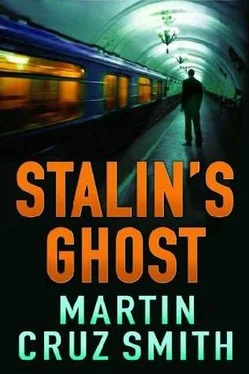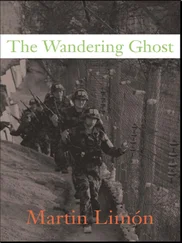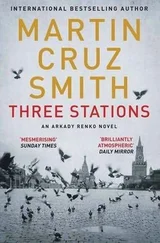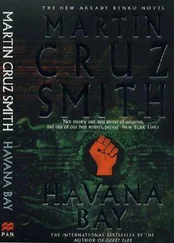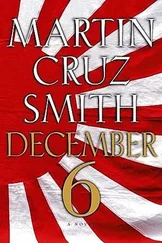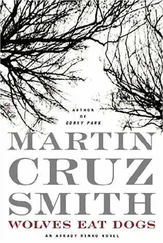Martin Smith - Stalin’s Ghost
Здесь есть возможность читать онлайн «Martin Smith - Stalin’s Ghost» весь текст электронной книги совершенно бесплатно (целиком полную версию без сокращений). В некоторых случаях можно слушать аудио, скачать через торрент в формате fb2 и присутствует краткое содержание. Жанр: Триллер, на английском языке. Описание произведения, (предисловие) а так же отзывы посетителей доступны на портале библиотеки ЛибКат.
- Название:Stalin’s Ghost
- Автор:
- Жанр:
- Год:неизвестен
- ISBN:нет данных
- Рейтинг книги:4 / 5. Голосов: 1
-
Избранное:Добавить в избранное
- Отзывы:
-
Ваша оценка:
- 80
- 1
- 2
- 3
- 4
- 5
Stalin’s Ghost: краткое содержание, описание и аннотация
Предлагаем к чтению аннотацию, описание, краткое содержание или предисловие (зависит от того, что написал сам автор книги «Stalin’s Ghost»). Если вы не нашли необходимую информацию о книге — напишите в комментариях, мы постараемся отыскать её.
Stalin’s Ghost — читать онлайн бесплатно полную книгу (весь текст) целиком
Ниже представлен текст книги, разбитый по страницам. Система сохранения места последней прочитанной страницы, позволяет с удобством читать онлайн бесплатно книгу «Stalin’s Ghost», без необходимости каждый раз заново искать на чём Вы остановились. Поставьте закладку, и сможете в любой момент перейти на страницу, на которой закончили чтение.
Интервал:
Закладка:
“Nothing. It escaped. It would have been great if it swallowed the boat.”
“And it would have been proof.”
Zhenya said, “I’d like to see a video of that.”
“Wouldn’t we all?”
Pushkin’s statue had a top hat, iron poise, perhaps a smirk. Arkady had no such style. Every few minutes, different men would come out of the dark, pass him and the statue in a speculative fashion and continue on their way. Fifteen minutes late Rudi rode the Ural up the embankment to Pushkin’s statue, followed by another biker on Rudi’s red bike.
Rudi climbed off, removed his helmet and shook his ponytail free. For the cool of the evening he wore camos, army green, not OMON blue. “Sorry, I’m late. I had to take back roads and alleys so no one would see me on a tricycle.”
“I understand. You have a reputation to protect.”
Rudi’s fellow rider was a heavyset man upholstered in leather and chains. His name was Misha. Misha rattled impatiently while Arkady counted out money.
“The helmet?” Arkady asked.
“In the sidecar. I filled the fuel tank.”
That was more than Arkady had expected. He unsnapped the sidecar cover and found a scuffed but uncracked motorcycle helmet with a visor.
“Thanks.”
“You know my granddad.”
“Big Rudi with the pitchfork?”
“Right. He is really sure he saw Stalin. He heard there was a man in Moscow who was shot in the head. Stalin appeared and the guy got up and walked away.”
“That’s quite a story.”
Misha said, “Rudi, are we going or what?”
Rudi waved him off and told Arkady, “I gave you a new tire. A knobby, for off-the-road action.”
“That’s generous of you.” Arkady did not plan to go off the road.
“You realize you’re coming out ahead on this deal, Renko.”
“What do you want?”
“You’re so fucking suspicious.”
“That’s right.”
“Okay, my granddad wants to see you again. It would mean a lot to him and I’d personally consider us even. He’s positive he saw you here during the war.”
“I wasn’t even born.”
“Humor him. He lives in the past and he remembers old stuff better than new. Sometimes he gets mixed up. He sees you and now he’s all wound up. Big deal, you drop by the shop for a visit. A fucking hour of your precious time.”
“At the dig.”
“I can’t do that. Like I said before, you’re not a Digger.”
“I’ll talk to Big Rudi at the dig. Nowhere else.”
“I explained, it’s not allowed. You have to be a Digger.”
“Too bad,” said Arkady.
“What a son of a bitch.”
“The dig.”
Rudi and Misha got on the red bike, which came to life with a vibrato that warned the world to move aside while Rudi went in circles around Arkady.
“You know, Pushkin’s not the only one here with brass balls.”
Rudi made another turn.
“We leave for the dig at six.”
As soon as Rudi had gone Arkady checked out his new acquisition. New to him. The Ural had to be thirty years old, at least. A spare tire was secured on the back of the sidecar, which looked like a large sandal and had the major amenities: a shovel and a windshield. The machine-gun mount had been cut off. Arkady had noticed when he first saw the bike that it was stamped in various places with a star, meaning it had come off a military assembly line.
Stalin’s engineers got their hands on some German BMWs, took them apart, strengthened this, simplified that and when they put the bikes back together they were Russian. Cossacks might be a lowly transporter of potatoes now, but they had once carried heroes to Berlin.
Arkady rolled through Tver. The Ural’s engine wasn’t symphonic but it was steady, its power dedicated not to speed but to traction, and since the sidecar was connected to the bike it drove like a car. No leaning. He rode by one dark restaurant after another, from one empty square to the next, like a chess piece alone on a board. If half the city was on the crawl, he was looking under the wrong rocks. He swung back toward the embankment, gathered speed along the river and had yet to see an open enterprise apart from an all-night casino that, compared to Moscow’s, had the allure of a pachinko parlor.
He was stopped at a traffic light when a Porsche convertible rolled alongside. Urman was at the wheel, looking more like a detective from Miami than one from Moscow. He was too occupied with smoothing his wind-whipped hair to give Arkady more than a glance; he might not have seen the bike at all. When the light turned green the Porsche took off like a rocket. Six blocks further on, Urman was entering a hotel as Arkady rode by.
Arkady U-turned and coasted back to a playground of seesaws, gnomes and kiosks opposite the hotel. The Porsche was in the driveway. The Hotel Obermeier was a fortress of brick. The ground floor, however, was plate glass and fountains, and Arkady had a sweeping view of the reception desk, concierge’s podium, elevator bank, bar and restaurant. All was dark except for a table by the restaurant window, where Urman joined Isakov, Eva and Prosecutor Sarkisian. Two waiters slumped over a corner table.
The party had reached the brandy and cigar stage, had possibly reached it hours ago but Sarkisian was holding forth. Urman laughed and filled a snifter. Was the subject humorous homicides or the election odds of the hometown hero? Isakov listened stoically, while Eva made no effort to hide her distaste. Sarkisian put his finger by his nose, signifying Armenian powers of insight. When he raised a glass, Isakov and Urman followed suit, while Eva rose from her chair and stood by the window to smoke a cigarette. Arkady trusted that on her side the plate glass had to be a mirror. Isakov waved to her to return to the table. She ignored him and rested her forehead against the pane. It wasn’t a happy scene.
Isakov motioned Eva again to rejoin the group at the table and she continued to ignore him. Urman covered the moment by humoring Sarkisian until, finally and without a word, Eva went to the elevator bank, pushed a button and disappeared behind metal doors. The men sat stupefied by her desertion. A room lit in the middle of the second floor. The waiters went on sleeping, heads deep in their arms.
Sarkisian pointed in the general direction of Eva and apparently said something less than complimentary, because Isakov picked up a fork and pressed it against the prosecutor’s neck. Arkady remembered what Ginsberg had said about Isakov’s calm; the detective’s move was unhurried and he didn’t appear to raise his voice, but he conveyed conviction. He seemed to tell Sarkisian what he probably should not do or say ever again and the prosecutor nodded in emphatic agreement. The waiters slept on.
Urman went to the window where Eva had stood and cupped his eyes against the glass. He saw something because he moved through the restaurant and lobby and out to the front steps of the hotel to scan the playground. Gnomes were bigger at night and more menacing, as if they were on the march. What seemed smaller was the kiosk. Was the Ural’s front tire showing? The rear? Arkady realized that Urman was waiting for a car to pass by. He was waiting for headlights.
Urman had to break off when Isakov came out of the hotel, half jollying, half carrying Sarkisian to the Porsche. They were all pals again, although the prosecutor’s eyes were white with terror. Together, the two detectives loaded Sarkisian into the convertible and belted him in.
Arkady heard the prosecutor say, “…every effort.”
Isakov said, “He can’t be far.”
Sarkisian sputtered something Arkady didn’t catch.
“I’d rather find him first,” Urman said.
Urman got behind the wheel and started the Porsche, which drowned further conversation. The car took off, gear changes whining the length of the street.
Читать дальшеИнтервал:
Закладка:
Похожие книги на «Stalin’s Ghost»
Представляем Вашему вниманию похожие книги на «Stalin’s Ghost» списком для выбора. Мы отобрали схожую по названию и смыслу литературу в надежде предоставить читателям больше вариантов отыскать новые, интересные, ещё непрочитанные произведения.
Обсуждение, отзывы о книге «Stalin’s Ghost» и просто собственные мнения читателей. Оставьте ваши комментарии, напишите, что Вы думаете о произведении, его смысле или главных героях. Укажите что конкретно понравилось, а что нет, и почему Вы так считаете.
